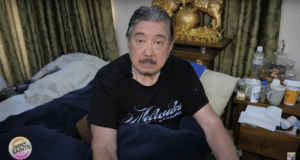THIS IS a reaction to a commentary titled “The tyranny of the masses” by Christopher Ryan Maboloc (Opinion, 1/27/16). I am not so familiar with the philosophy of Hannah Arendt with which he premised his opinion. Nonetheless his conclusion that “[t]he masses only need to convince themselves not to sell their freedom of choice” is quite simplistic.
His conclusion implies that the poor sell their votes—and that is why the country gets the wrong candidates elected. This puts the electoral results mainly in the hands of the masses, which is far from accurate.
For one, there is the Commission on Elections, whose commissioners are presidential appointees and they set the rules and conduct the elections. Then there is the campaign period for which candidates need quite a sum of resources for popularity and recall. It may be true that rich people will not sell their votes, but only because they cannot be bribed with P500 only. Yes, it is the poor who may vote for that consideration, but the money is not the only consideration. Let us not forget that many politicians also have guns and goons. The Ampatuans are a good example.
After the voting exercise, there is the counting. This part is the most magical of the electoral process. “Hello, Garci” is a good example.
In his penultimate sentence, Maboloc stated that “the masses should rise above the defeatist attitude that has been indoctrinated in them by their past and present oppressors.” Not all have “defeatist attitudes.” In fact, many try to rise above what they are now. A good example is the lumad, the indigenous people of Mindanao, who strive to get an education by building their own schools. However, government military and paramilitary forces continue to harass them. Several school officials and advocates have been killed while communities have been forced to evacuate because of the threats.
The agreeable point in the article is, “Mass deception happens when a people’s collective consciousness becomes forgetful.” Indeed, mass deception is so ever present. It brings about not only forgetfulness but also confusion. A good example is the P-Noy administration’s stance on China’s intrusion into the Spratly and Paracel islands. Immediately, the government called on the United States for support, even inviting it to set up bases in the country. Weeks ago, this same government enrolled the country to be a member of the Asian Infrastructure Investment Bank, an international financial institution with a $100-billion capital from China.
Come Feb. 4, the country commemorates the first shot that started the Philippine-American War (1899). No fireworks, just an ordinary day. But Feb. 8 is red-lettered—it is the start of the Chinese new year of the fire monkey.
The electoral process is a complex mix of political and economic system and culture of the country, past and present. Simplifying the matter as “the tyranny of the masses” will bring us farther from the right path of change.
—JULIE L. PO, Linangan ng Kulturang Pilipino, jlp704@yahoo.com


